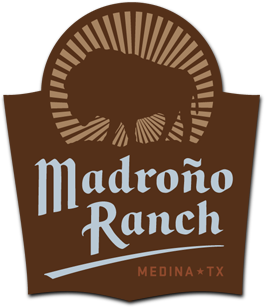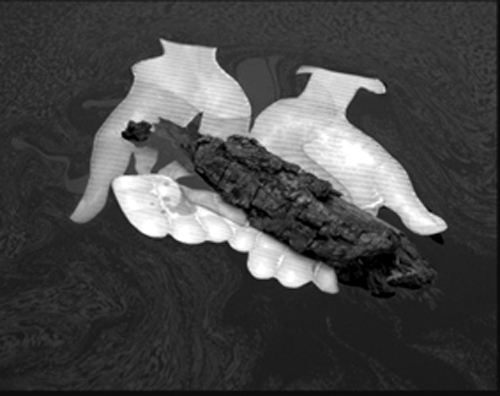Martin’s last post about our entertainingly (or so we hope) ill-prepared entry into the marketplace has got me thinking. (Martin says the most terrifying words in the world are “Honey, I’ve been thinking…” when they come out of my mouth. Reader, beware!)
In preparing for the seminar we’re going to lead at the Gemini Ink Summer Lit Fest in San Antonio next month, I’ve been rereading Lewis Hyde’s The Gift: Creativity and the Artist in the Modern World. The description of our seminar asks all the Big Questions about our hopes and plans for Madroño Ranch. I’m not sure what prompted me to look at The Gift again, but whatever it was, it was, well, a gift; Hyde beautifully untangles many of the ideas knotted in my head about those hopes and plans.
He begins by identifying the two distinct economies in which a work of art exists: the market economy and the gift economy. While a work of art can exist without a market, it cannot exist without a gift. Harlequin Romances, for example, follow guidelines set by market research and sell very well. But are they works of art? Probably not. While writing one requires a certain level of competence, a Harlequin Romance probably doesn’t have a foot, or heaving bosom, in the gift economy.
Hyde develops a theory of the gift, which of course has multiple levels of significance. Its economy is marked by three related obligations: to give, to accept, and to reciprocate. Gift exchange is what one early theorist called a “‘total social phenomenon’—one whose transactions are at once economic, juridical, moral, aesthetic, religious, and mythological.” Gift exchange is an issue in medical ethics as well, especially with reference to organ transplants: what is the status of body parts? Is it appropriate to commodify what has traditionally been regarded as a gift? What are the consequences when something moves from the gift economy to the market economy—when worth and value are confused?
Hyde cites the case of the Ford Pinto, a car that had a tendency to spill gas in low-speed collisions, a defect that killed at least 500 people. An easy fix for this defect existed, but after a cost-benefit analysis which valued a human life at $200,000, Ford decided that the costs of fixing the Pinto exceeded the benefits. While the decision may have made sense from a market perspective, it ignored the fact that most of us participate in another economy as well, one in which the gift of life cannot be assigned a dollar value.
One of the marks of a gift is that it is always in motion, transferred from one individual or community to another. It must be consumed (i.e., eaten, immolated, thrown into the sea) or given away; otherwise, it ceases to become a gift and becomes mere property. A true gift is the antithesis of personal property. Hyde says that “a gift is consumed when it moves from one hand to another with no assurance of return…. A market exchange has an equilibrium or stasis; you pay to balance the scale. But when you give a gift there is momentum, and the weight shifts from body to body.” Gift economies generally operate in relatively small communities like families, brotherhoods, or tribes; market economies tend to emerge at the limits of gift economies as a means of negotiating with outsiders. While my truncated description makes gift economies sound primitive, they aren’t; Hyde cites the (ideally) unrestricted flow of ideas within the scientific community as an example. When ideas become remunerative for an individual or a portion of the community instead of free to the entire community, the gift economy dries up and the spirit of the group evaporates. The gift of ideas ceases to move.
Gift economies foment community; market economies fragment it—another iteration of the endless wrestling match between the Many and the One. One of the great benefits of a market economy—freedom from bondage—has significant limits. Where “the market alone rules, and particularly where its benefits derive from the conversion of gift property to commodities, the fruits of exchange are lost. At that point commerce becomes correctly associated with the fragmentation of community and the suppression of liveliness, fertility, and social feeling. For where we maintain no institutions of positive reciprocity, we find ourselves unable to… enter gracefully into nature, unable to draw community from the mass, and, finally, unable to receive, contribute toward, and pass along the collective treasures we refer to as culture and tradition.”
So here’s what I’ve been thinking, honey: industrialized nations have converted the gift properties of nature into commodities. Any aboriginal people could have told us that disaster would ensue as a result of buying and selling what was pure gift, something not earned but given to us in abundance that the gift economy demands we pass on to our children in its original abundance.
I’ve also been rereading Bill McKibben’s The End of Nature, in which he quotes the journals of the early American artist, writer, and wanderer George Catlin. Riding north to the Missouri River, Catlin found a campsite “in one of the most lovely little valleys I ever saw, and even far more beautiful than could be imagined by mortal man… an enchanting little lawn of five or six acres, on the banks of a cool and rippling stream, that was alive with fish; and every now and then, a fine brood of ducks, just old enough for delicious food and too unsophisticated to avoid an easy and simple death. This little lawn was surrounded by bunches and copses of the most picturesque foliage, consisting of leafy bois d’arcs and elms, spreading their huge branches as if in offering protection to the rounded groups of cherry and plum branches that supported festoons of grapevines with the purple clusters that hung in the most tempting manner over the green carpet that was everywhere decked out with wild flowers of all tints and various sizes, from the modest sunflowers, with their thousand tall and droopy heads, to the lilies that stood, and the violets that crept beneath them…. The wild deer were repeatedly rising from their quiet lairs, and bounding out and over the graceful swells of the prairies which hemmed it in.” McKibben comments, “If this passage had a little number at the start of each sentence, it could be Genesis….”
So with Hyde and McKibben in the front of my mind, I was stunned to read of Judge Feldman’s recent injunction against President Obama’s moratorium on offshore drilling, which just proves that I live in a lovely little bubble along with fairies and elves and a herd of unicorns. I do not argue against the fact of the market economy any more than I argue against the changing seasons. Nor do I argue against the gravity of depriving tens of thousands of Gulf Coast residents of economic stability. But those who value the treasures of the Gulf through a market-driven cost-benefit analysis need to remember that they’re operating in a gift economy as well, and that there will be an audit.
Back to Gemini Ink and Madroño’s mission. We hope that Madroño will operate in a way that recognizes the beauty and necessity of both markets; after all, I’m out there hawking the virtues of bison meat. But I hope that in producing that meat we recognize the gift of abundance it brings us, that we honor that gift, and that we pass it on to our children and to the community in and around the ranch.
What we’re reading
Heather: Bill McKibben, The End of Nature
Martin: Paul Hawken, The Ecology of Commerce: A Declaration of Sustainability


Heather: No, you do not live in a bubble with unicorns, and we should al have been stunned at the injunction. Certainly there will be the ultimate "audit", but even a contemporary, pragmatic audit would show that there are thousands more unemployed right now as a result of the spill than of the suspension of drilling on 33 rigs our of the nearly 4,000 still producing. And if ALL the resources for reacting to such a spill are clearly inadequate to deal with the problem, what would the judge propose as the enlightened course of action to react to a second such failure in a process proven to be flawed…
Unfortunately, there seems to be little conversation about the "gift economy" so thank you for raising your voice in this cacophonous discourse of our market economy.
Stay the course!
Simple Gifts is one of my favorite songs!
Actually, although I haven't read the book I'm going to hop in and say that I think Harlequin romances may indeed be part of the gift community. People are good at subverting the market, as you know, and what people bring to these books and the way they share them (not to mention the very real intentions to create art by some [I know, not all] of the authors) let the books cross over, at least from time to time…….
Again! You guys are at the forefront of connecting art and ecology; these posts are an incredible gift to the rest of us working out these relationships.
"Here's what I'm thinking, honey" made me laugh out loud. This is brilliant, the two of you are brilliant, and the rest of us are so lucky that you're part of our gift economy of friendship.
By the way, I saw some of your unicorns in my front yard this morning. I told them to head west, and then south.